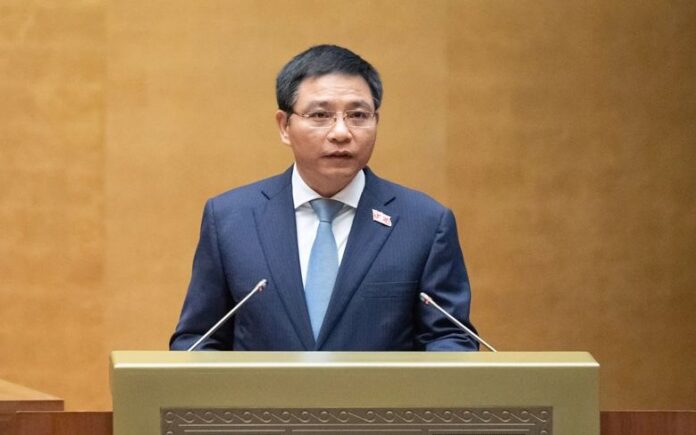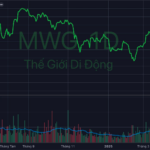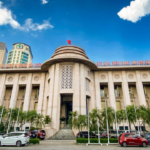VAT Reduction for Gasoline, Washing Machines, and Microwaves
On the morning of May 13, as the 9th session continued, Minister of Finance Nguyen Van Thang presented a proposal for a National Assembly resolution on reducing the value-added tax (VAT).
This resolution applies to goods and services currently subject to a 10% tax rate, excluding the following: telecommunications, financial activities, banking, securities, insurance, real estate, metal products, mining products (except coal), and special consumption tax goods and services (except gasoline) in the last six months of 2025 and throughout 2026.
The resolution maintains the goods and services that are subject to a 2% VAT reduction as per Resolution 43.
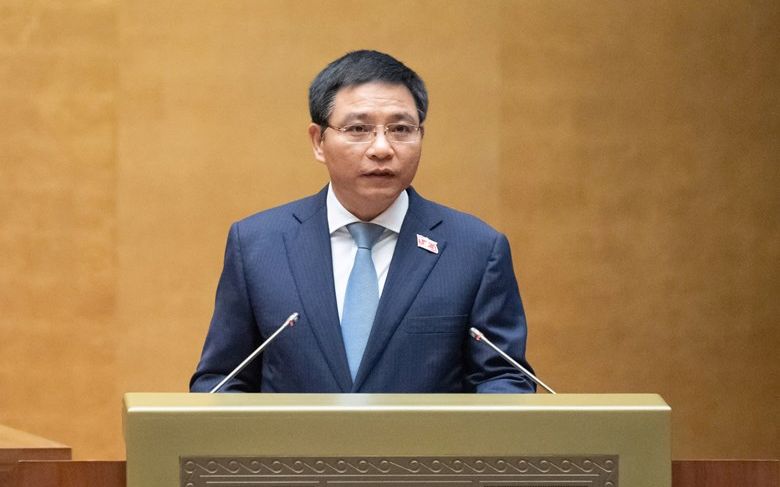
Minister of Finance Nguyen Van Thang
At the same time, the draft resolution expands the scope of the 2% VAT reduction to include some goods and services that were not covered by Resolution 43. These include:
Information technology products (such as washing machines, microwaves, data processing services, leasing and related activities, portals…), cast metal products (such as tanks, containers, and metal utensils, boilers…). According to Mr. Thang, these are goods and services that directly serve the consumption needs of the people.
Coke, refined petroleum products (such as coke, fuel oil, and gasoline, lubricants…), chemical products (such as fertilizers and nitrogen compounds, synthetic plastics and rubber…), coal at the import stage and coal sold in commercial trading (domestic coal mining has already been reduced according to Resolution 43).
These are raw materials used in the production process to serve the production of consumer goods for the people.
Regarding gasoline and oil, according to the Minister of Finance, although gasoline is subject to special consumption tax and oil is a refined petroleum product, they are essential for many industries, businesses, and people’s lives. Changes in gasoline and oil prices can directly affect domestic production, consumption, and macroeconomic stability.
According to Minister Nguyen Van Thang, the VAT reduction will lead to a decrease in state budget revenue, but it will also stimulate production and promote business activities, thereby contributing to additional budget revenue.
The expected reduction in state budget revenue for the last six months of 2025 and 2026 is equivalent to approximately VND 121,740 billion. Of this, VND 39,540 billion is expected to be reduced in the last six months of 2025, and VND 82,200 billion in 2026.
Moreover, the VAT reduction will contribute to lowering the cost of goods and services, thereby promoting production and business activities and creating more jobs for workers. It will also help stabilize the macro-economy and economic growth in the last six months of 2025 and 2026.
For the people, Mr. Thang emphasized that they will directly benefit from this policy. The 2% VAT reduction will directly reduce their costs when consuming goods and services that serve their daily lives.
For businesses, the 2% VAT reduction will help reduce production costs and lower product prices. This will be achieved by reducing the VAT on the production and trading of goods and the provision of services, leading to lower selling prices for consumers. Consequently, businesses will improve their competitiveness, increase the consumption of their goods and services, and expand their production and business activities, creating more jobs for workers.
Proposal to Reduce Taxes for All Groups of Goods
According to the assessment of the Economic and Financial Committee, most members agreed on the necessity to issue a resolution to continue applying the VAT reduction policy for the last six months of 2025 and 2026 as proposed by the Government to support businesses in promoting production and business activities, along with maintaining macroeconomic stability.
“In the context of the domestic economy facing many difficulties and challenges and the unpredictable fluctuations in the world economy, the continued issuance of this policy can be considered a measure to stimulate domestic consumption and promote growth, contributing to the achievement of the set target of 8% growth,” said Mr. Mai.
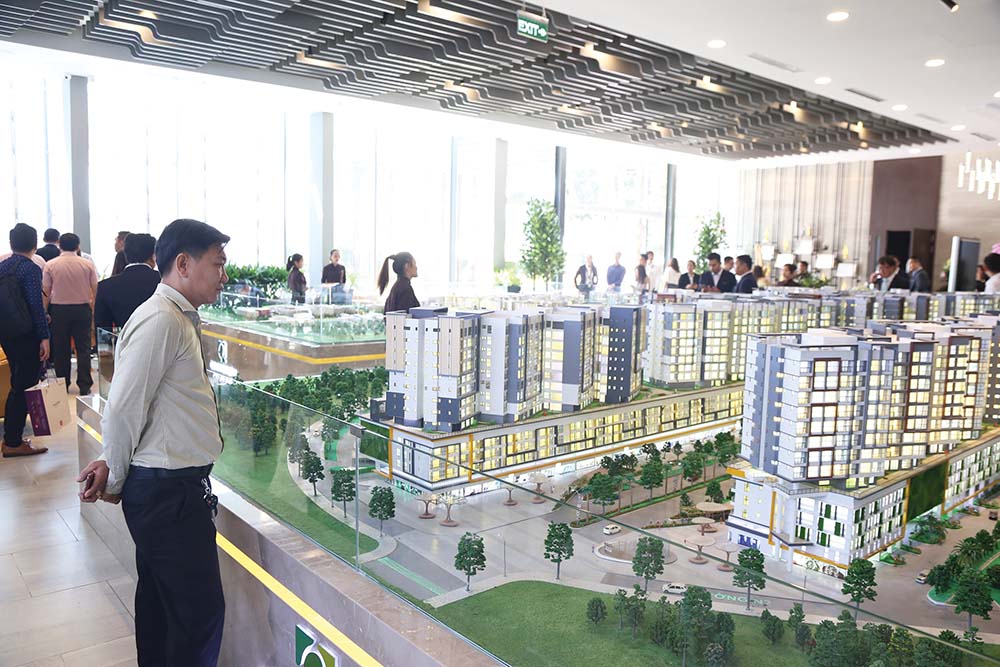
There are suggestions to reduce taxes on all goods and services to ensure fairness.
However, there were also suggestions to review and consider the impact of trade wars and the US tax response on certain items. Some members proposed that only three groups of goods and services were not subject to tax reduction, so the Ministry of Finance should review and consider reducing taxes on all goods and services to ensure fairness if the 2% VAT revenue gap is not too large.
Some opinions suggested that the expansion of the reduced tax scope should be carefully considered, as the economy is currently developing and growing stably, and the proposal to expand the reduced tax scope may not be truly appropriate.
“Strategic and Focused: A New Approach to State Capital Investment”
“There is a growing consensus among National Assembly delegates to reconsider allowing state-owned enterprises to invest in real estate outside their core industries. This proposal has sparked debate, with some arguing that it could lead to a potential conflict of interest and unfair competition in the market. However, proponents of the idea believe that with careful regulation, it could be a boon for the economy and provide much-needed diversification for these businesses.”
The Art of Monetary Policy: A Symphony of Synchronized Solutions for Currency Stability
The State Bank of Vietnam (SBV) has released a report on the implementation of the National Assembly’s questioning resolutions. The report provides a detailed insight into the central bank’s conduct of monetary policy in recent times.

